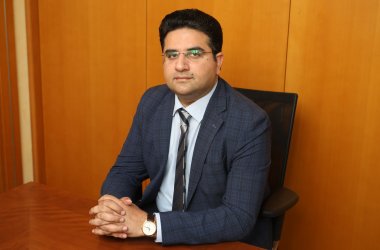Reseller ME explores the opportunities present in the Qatar market and how channel partners can look at expanding their business.
Occupying a peninsula that extends to the Persian Gulf, Qatar presents a wide range of opportunities for channel players who are looking to set shop in the fast-growing country.
The Middle Eastern country’s growth in the IT market is largely attributed to modernisation projects such as upgrades to infrastructures and continued investments in the build-up to hosting the World Cup in 2022. According to a recent report by BMI Research, the ICT sector has been a key beneficiary of the government’s drive to diversify the economy away from the hydrocarbons, through its e-Government 2020 strategy and strong support for the development of smart cities. The market analysis firm further predicts a bullish outlook for the country’s consumer electronics market, stating growth drivers such as high per capita income, strong consumption culture, steady population growth from the influx of migrant workers and the government’s continued commitment to investment in the ICT sector.
Maya Zakhour, Channel Director, Middle East, Fortinet, says, “Government spending on infrastructure projects in the recent years is a key driver for economic as well as infrastructural growth. This, in turn means increased investment by large enterprises that drive Qatar’s economy, and attracts manpower and enhanced infrastructure.
“Development translates into new opportunity and what could be better for channel partners than the chance to identify these opportunities and capitalise on them. The growth of the economy creates more business opportunities for the channel players in the market. Qatar currently has one of the best fixed and wireless infrastructure in the GCC, which also is a great opportunity for channel players to upsell and cross-sell within the enterprise solutions.”
Agreeing, Stephan Berner, Managing Director, Help AG, says, “In a country that is in a development phase, we have to make sure to enable the organisations understand the importance of having an information security strategy in place. We make sure to elevate our customers in any and every aspect of information security protection to minimise the risk of falling victim to breaches from internal and external threat vectors.
For the country’s enterprises, the focus and investments are around emerging technologies such as Big Data, cloud, IoT and security, as is the case with other organisations across the Middle East. With Smart City initiatives well underway, security becomes a key area of focus for the government. Channel players should look into these areas and work towards being a trusted advisor.
Feras Masoud, Channel Manager, GCC, Levant and Egypt, Aruba, a Hewlett Packard Enterprise Company, says, “As the country is going through huge infrastructure growth and expansion, it will need a lot of IT services to be provided to the customers in order to address the new IT needs. Channels in Qatar should invest on their resources and focus on providing services.
“Post-sales support is one of the most important factors that the end users are looking for. The second important factor for the partners to focus on is the show case and the demo centre that they need to have on their premises while most of the customers, if not all, are looking to attend a live demo and real show case for the required solutions. Mobility is one of the main required solutions that the partners have to show and present live to the end users before they take the decision to buy.”
Berner says, the focus for the company in Qatar is around managed security services. But the country is not without its challenges.
“Big challenges for any organisation in the region includes lack of qualified information security resources, lack of skillsets and expertise, and the ability to monitor, detect, respond and remediate 24×7 to information security incidents. This is what we do by having our Cyber Security Operations Centre taking care of security event management, incident response, managed security devices without any data logs leaving the customer premises.”
According to Masoud, the other challenges facing the company and its partners are ensuring best possible post-sales support and brand and solution awareness in the Qatari market. Also, investing on demo centres and specialised labs to be used as a show case for the customers is another challenge.
“We at Aruba are creating special programmes for our partners to help them face these challenges. For example, we do provide special technical programmes for our partners with some specialised courses, plus several running enablement sessions country per country to provide more info about the new roadmaps and the new released products and solutions.”
The company also offers a large discount for the demo labs provided to its partners to help them build the best of class demo laps.
“From a marketing perspective we work closely with our partners to provide regular events in Qatar to educate our customers with the new released solutions and technologies, which will also help on providing solution and technology awareness,” he adds.
While the Qatar market presents a wide range of opportunities, it is important for channel partners to have clear and niche focuses, as only with a dedicated approach, can there be success.
Although due to declining oil prices the growth in the country may be sluggish at the moment, experts predict the market to stay steady and eventually pick up a faster pace over the next few years. Having said this, it is necessary for channel partners to undertake thorough market research and understand the local nuances well before setting up, to ensure a profitable business.
Zakhour says, “Vendors and systems integrators are investing into technology events and roadshows in the country to invite end-users to see how technology can transform their business to keep up with the rapid change in the landscape. Our plan for the next 12 months is to enable partners to help meet the growing demands and we will certainly contribute to growing this market.”





